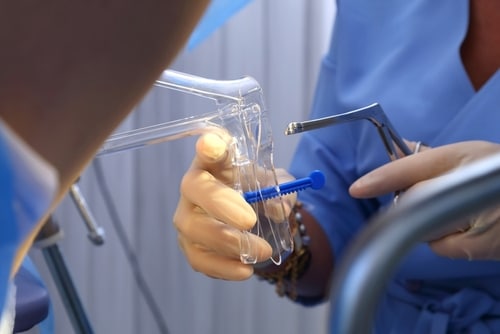Researchers from The University of Manchester have explored the barriers that block patients from attending their cervical cancer screening appointments and perspectives around self-sampling methods as an alternative.
Cervical cancer screening rates have fallen in the UK in recent years. While swathes of women and people with a cervix aged 25 to 64 in England attend their cervical cancer screening appointments on a routine basis, only 69% of those eligible attended their screening in 2023-24.
While cervical cancer screening is carried out by healthcare professionals under the current UK programme, there is potential for patients to test themselves using self-sampling methods such as vaginal swabbing and urine sampling.
Recent evidence finds that self-sampling is similarly effective as clinician obtained samples, and the UK government’s National Screening Committee is investigating it.
However, evidence is limited on whether these self-sampling methods will help tackle the barriers many face in accessing cervical screening, prompting researchers from The University of Manchester to address this research gap in their study, published in BMC Health Services Research.
The current UK screening programme has been hugely successful in detecting and preventing cervical cancer, but disparities in uptake of the screening programme are prevalent.
The study found that self-sampling alternatives may be useful where barriers prohibit access and may help to reduce a health inequity for some under-served groups.
Qualitative data was collected from 46 participants via interviews and focus groups, mindful of three theoretical frameworks: access to primary care services, intersectional and feminist perspectives.
Results showed a number of individuals had a good experience throughout the screening process. With regards to healthcare professionals, both positive and negative experiences were reported by participants, while negative experiences were also associated with the use of the speculum to carry out the screening.
Ultimately, the study found that examples of good practice in the current cervical screening programme are prevalent, but barriers to screening remain for under-served groups. Consistency is needed to ensure patient experience is high across the board, and the introduction of self-sampling alongside the current screening programme could be beneficial for boosting rates among under-screened groups.
However, it is important to note that if self-sampling is rolled out alongside the screening programme, effective communication and the appropriate information must be given to patients. The absence of such provisions could threaten the benefits of introducing self-sampling.
Stephanie Gillibrand, research fellow in the division of population health, Health Services Research & Primary Care at The University of Manchester said: “It was heartening to conclude that many patients think their needs are being met through the current cervical cancer screening programme, and that there were so many examples of good practice reported relating to the standard of care received from healthcare professionals. However, the barriers we know have existed for years are obviously still blocking some patients from attending their appointments.
“Overall, attitudes towards the urine sampling and vaginal swab methods were very positive and these self-sampling tests give women more choice around how they are screened for cervical cancer, increasing their confidence around the process. If implemented alongside the current screening option, self-sampling methods could help the healthcare system reach under-screened groups if implemented effectively.”
Certain patients are less likely to attend their routine cervical cancer screening, including people from some ethnic minority communities and those in older and younger groups. Others less likely to attend include those living in socially deprived areas, those with lower education levels and people with intellectual disabilities.
Cervical cancer screening can also be an issue for people who have experienced sexual violence and homelessness.
A barrier presented by the current screening programme is the invasive nature of the speculum procedure, which for many prompts fear due to the possibility of discomfort or pain.
An individual may decline a cervical cancer screening appointment due to a lack of knowledge and awareness, embarrassment, or because of logistical barriers such as childcare responsibilities and an inflexible working arrangement.
The study found that self-sampling methods may help to address some of these practical barriers, as they could potentially be done at home.
The study was funded by the National Institute for Health and Care Research (NIHR)’s School for Primary Care Research award, supported by NIHR Applied Research Collaboration Greater Manchester.





